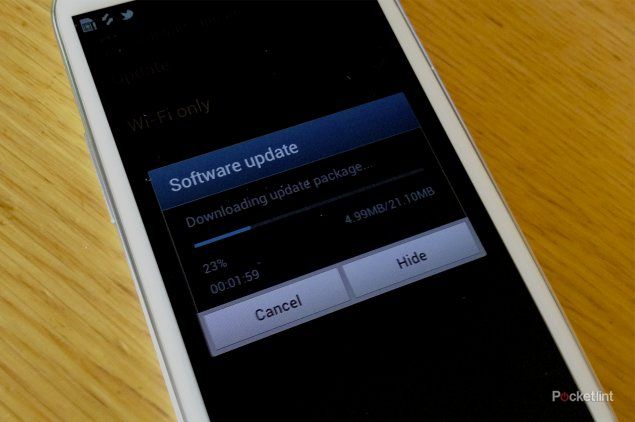We like new toys, and we’ve started to get used to the gadgets we buy getting free updates along the way, making them better all the time. But in reality many people never update their phone, computer, console, or anything else.
Microsoft’s decision to leave current Windows Phone 7.5 users behind when it launches a new range of devices and a new mobile operating system later in the year has opened up the great update debate: how do we get around the fact that technology now moves so quickly that we can’t always "leave no man behind".
The idea of convincing consumers to ditch their current system for a new one isn’t new, certainly not for Microsoft.
History shows us that it has asked its users on several occasions to upgrade hardware. Leave the past behind and jump into a brave new world. It's a common message from the company.
PC users of Windows 3.11 had to leave the operating system behind when they went to Windows 95 if they wanted to make the most of the new features for the impressive new hardware that it supported, then again for Windows XP, then again for Windows 7 and its more hardware demands, just as they will for Windows 8 if they want to enjoy all the benefits of the new OS especially the touch elements.
Likewise, Xbox games weren’t all compatible with the Xbox 360 console, but still we moved on. On the whole most people either don’t care, or understand that it is the price you have to pay for progress -especially in the tech world.
Each step cost money, it wasn't free.
In the past we seemed to understand this, but now we’ve been treated to the odd free update and without warning envy creeps in.
The truth is, if you don’t know about an available update for your phone, console, or computer, then it's just as good today as it was yesterday. Regardless of what Apple says, an iPhone with Apple Maps is just as good as a iPhone with Google Maps.
What I am trying to say is that while there is an avid band of people that must always have the latest and greatest, and expect it for free, many just don’t care.
Take the motor industry, for example: the chances are your car isn’t the latest model - if it is this article isn’t for you. Since you bought that car there have been advances in the tech that is uses. If you want them you have to buy a new car, but at no point do you expect a mechanic to come around to your house and offer you a free upgrade to the braking system, or better fuel consumption, just because you bought it a couple of months ago.
And while Apple provides the best updating services for its devices in the business - its approach is to try to bring as much to older iPhones as it can - it acknowledges that it isn’t possible all the time.
The original iPhone has been left behind long ago, and anyone who is running iOS 5 on the iPhone 3GS will tell you it isn’t a great experience. Even then, a lot of the features aren’t supported, and with the introduction of iOS 6 that number of special features grows even larger.
The argument is that the iPhone 3GS is more than two years old so it shouldn’t matter as much, but I think that is more a failure by Microsoft's marketing department and how it delivered the news of the Windows Phone 8 announcement, rather than anything else. They didn't lie, were very clear about how it would affect users, and that could spell big problems for Nokia which has invested heavily in the platform.
If Microsoft had said: "Current Windows Phone users will be getting Windows Phone 8, but without a number of features" would the tech press be batting an eye-lid?
But it’s not just Microsoft and Apple that have forced people to ditch their favourite gadgets for a new model in order to enjoy new features. Google is perhaps the biggest culprit in the upgrade game, and its own published stats show that.
There are almost 1m Android handsets being activated every day at the moment, and of all the Android handsets in circulation only 7 per cent are running the latest version, Ice Cream Sandwich. ICS was announced in October, yet hardly anyone is using it.
Of the bigger Android community, around 65 per cent are on Gingerbread, but there are a further 20 per cent on Froyo, the Android OS version launched before that.
The chances are, that while there are a number of Froyo users able to upgrade to Gingerbread, they haven’t bothered. Why? Because they don’t care, or don’t need to, or are just happy enough to enjoy the current software they have.
We suspect you are one of those people that press the update button on your phone as soon as you hear an update is coming, just on the off chance that it might have turned up early. But then we suspect that you are one of those people rocking the latest phone, be it from Apple, Samsung, HTC or Nokia.
But think about the majority of non-tech people you know. They probably don’t even know where the update button is on their device. Think of the thousands of companies still running Windows XP, or the millions of gamers still enjoying a Nintendo DS rather than the 3D version.
Free updates are a nice bonus, a way of saying thanks for using a product. We shouldn't expect them, just the same as we don't expect to get a free bottle of beer when we order a takeaway curry from our favourite restaurant. When it is offered, it is a nice thank you, but most people wouldn't miss it if it wasn't offered, and most would never dream of asking for it.

